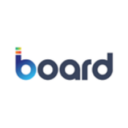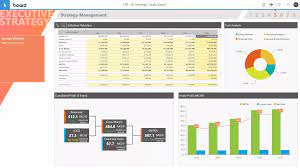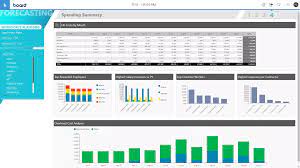Zoho Analytics, a robust business intelligence and analytics platform, plays a pivotal role in empowering businesses to unlock the full potential of their data. With its intuitive interface, powerful features, and comprehensive capabilities, Zoho Analytics enables users to analyze data, visualize trends, generate interactive reports, and derive actionable insights, ultimately contributing to business success. This article is designed to provide a deep dive into the realm of Zoho Analytics, exploring its key features, benefits, pricing options, use cases, and integration capabilities.

Board software, also known as a board management system or board collaboration tool, is a digital platform designed to facilitate seamless board communication, document management, and meeting organisation. It provides a centralised hub for board members and administrators to access crucial information, collaborate on documents, and conduct board meetings efficiently.
This article explores the key aspects of board software, including its features, pricing models, download options, and the benefits it offers to organisations.
- Document Repository: A board portal acts as a secure document repository, housing all board-related documents, including meeting agendas, minutes, policies, and reports. It ensures that board members have access to the latest and relevant information.
- Permissions and Access Controls: Board portals offer granular permissions and access controls to ensure that only authorised individuals can view and edit specific documents. This enhances data security and privacy.
- Board Communication: Board portals provide a platform for secure communication among board members, allowing them to exchange messages, share documents, and collaborate on board-related matters.
- Calendar and Scheduling: A board portal often includes a calendar feature to help schedule and manage board meetings. It allows administrators to set meeting dates, send invitations, and track RSVPs.
- Mobile Accessibility: Many board portals offer mobile apps or responsive web interfaces, enabling board members to access board materials and participate in meetings using their smartphones or tablets. This enhances convenience and flexibility.
- Document Management: Board software provides a secure repository for storing and accessing board documents, such as meeting agendas, minutes, reports, and financial statements. It enables easy document sharing, version control, and ensures that board members have access to the most up-to-date information.
- Meeting Organisation: With board software, administrators can efficiently plan and organise board meetings. They can create meeting agendas, schedule meetings, send automated notifications and reminders to board members, and track attendance. This streamlines the entire meeting process and ensures that everyone is well-prepared.
- Collaboration Tools: Board software facilitates collaboration among board members by offering features such as document annotation, commenting, and real-time collaboration. Board members can review and provide feedback on documents, collaborate on strategic decisions, and exchange information securely within the platform.
- Secure Communication: Board software provides a secure communication channel for board members to discuss sensitive matters, share confidential documents, and maintain data privacy. It ensures that board discussions and communication remain within a controlled and encrypted environment.
- Voting and Decision-Making: Many board software solutions include features for conducting virtual voting and decision-making. Board members can cast votes, record decisions, and track the outcomes of resolutions. This eliminates the need for manual vote counting and simplifies the decision-making process.
- Task Management: Board software often includes task management capabilities, allowing administrators to assign and track action items arising from board meetings. This helps ensure accountability and follow-up on decisions made during meetings.
During the evaluation process, organisations should consider factors such as ease of use, customisation options, integration capabilities, and overall user experience. It is also recommended to involve key stakeholders, such as board members and administrators, in the evaluation process to gather feedback and ensure their requirements are met.
- Subscription-Based: Many board software solutions offer subscription-based pricing, where organisations pay a recurring fee (monthly or annually) based on the number of board members or users accessing the platform.
- Tiered Pricing: Some vendors offer tiered pricing plans with different feature sets or levels of support. Organisations can choose the plan that best aligns with their requirements and budget.
- Custom Pricing: For larger organisations or those with specific needs, vendors may offer custom pricing based on factors such as the number of board members, additional modules or integrations, and implementation services.
When evaluating pricing, organisations should consider not only the upfront costs but also any additional fees for implementation, training, ongoing support, and potential future upgrades.
- Meeting Agendas: Board meeting software enables the creation and distribution of meeting agendas to board members. It allows administrators to create structured agendas, attach relevant documents, and set time allocations for each agenda item.
- Meeting Minutes: During board meetings, meeting minutes are essential for capturing decisions, action items, and discussions. Board meeting software simplifies the process of taking meeting minutes by providing templates, automated formatting, and easy sharing with board members.
- Presentations and Slide Decks: Board meeting software often includes presentation capabilities, allowing board members to deliver slideshows and presentations directly within the platform. This eliminates the need for external presentation software and ensures a seamless meeting experience.

In the rapidly evolving landscape of modern business, efficient board management and collaboration are paramount for organizations to make strategic decisions, foster growth, and uphold governance standards. Outdated manual processes and reliance on physical paperwork for managing board meetings are increasingly being replaced by more streamlined and effective solutions.
- Document Repository: A board portal acts as a secure document repository, housing all board-related documents, including meeting agendas, minutes, policies, and reports. It ensures that board members have access to the latest and relevant information.
- Permissions and Access Controls: Board portals offer granular permissions and access controls to ensure that only authorised individuals can view and edit specific documents. This enhances data security and privacy.
- Board Communication: Board portals provide a platform for secure communication among board members, allowing them to exchange messages, share documents, and collaborate on board-related matters.
- Calendar and Scheduling: A board portal often includes a calendar feature to help schedule and manage board meetings. It allows administrators to set meeting dates, send invitations, and track RSVPs.
Mode Analytics, developed by Mode Analytics Inc., stands out as a robust analytics solution that empowers users to efficiently explore, analyze, and visualize data. This article aims to comprehensively explore various dimensions of Mode Analytics, encompassing crucial elements such as pricing, reviews, tutorials, dashboard capabilities, features, data visualization capabilities, the implementation process, available training options, a comparative analysis with Tableau, and insights into the download process.
Logi Analytics, a prominent embedded analytics platform, equips organizations with tools to create interactive dashboards, reports, and visualizations that facilitate informed decision-making. This article will delve into various facets of Logi Analytics, encompassing essential elements such as pricing, reviews, tutorials, dashboard capabilities, features, data analytics functionalities, the implementation process, available training options, a comparative analysis with Tableau, and insights into the download process.






